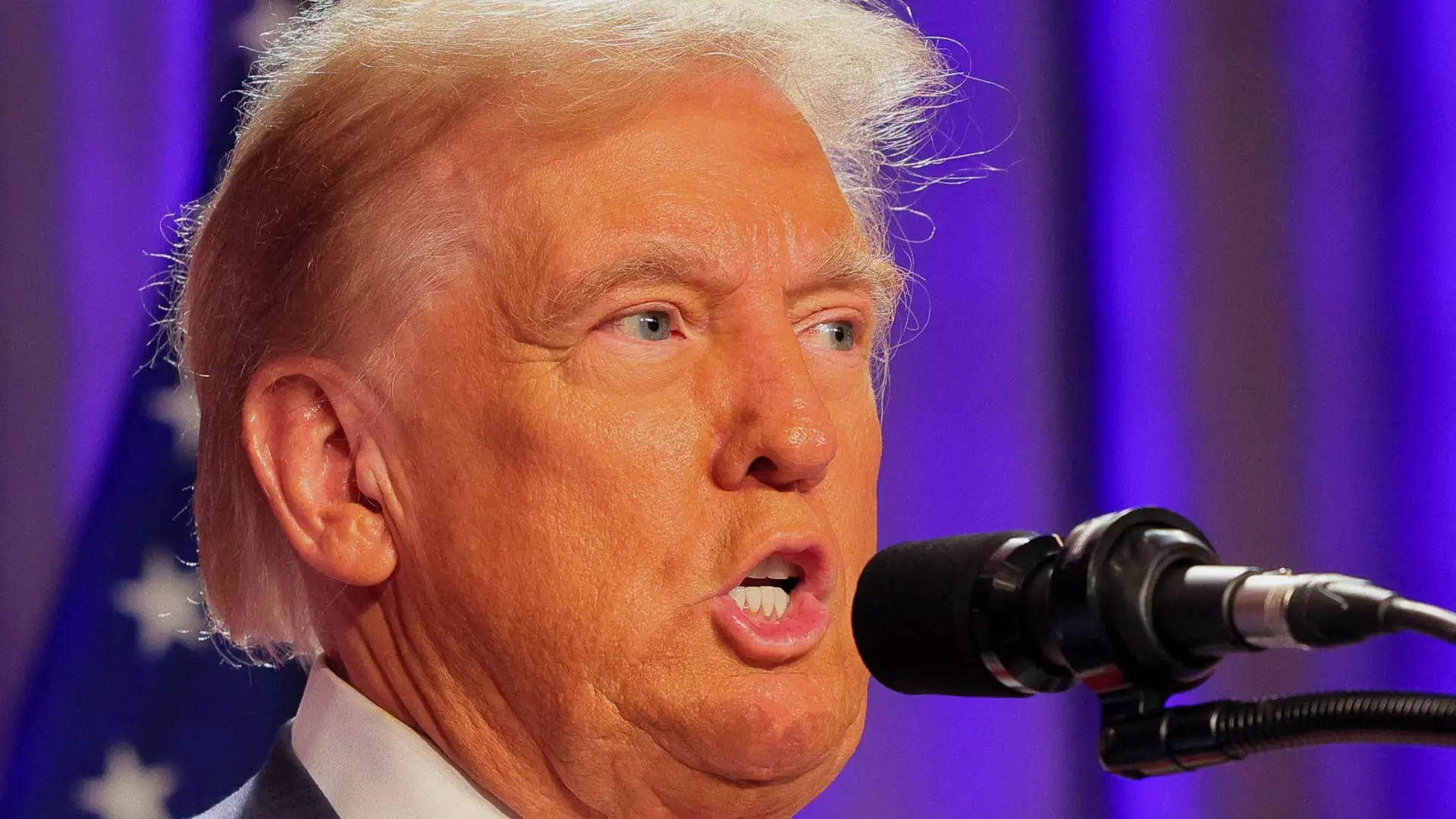In a pivotal interview on NBC’s “Meet the Press,” President-elect Donald Trump elaborated on his vision for foreign policy, particularly regarding military aid and international alliances. His comments have generated a spectrum of responses, as he contemplates a significant shift in the United States’ approach to global conflicts, especially those involving Ukraine and NATO.
Trump’s remarks regarding military aid to Ukraine signal a possible departure from the established U.S. support framework. He indicated that Ukraine might receive “possibly” less military assistance upon his assuming office, despite the Biden administration’s commitment to providing substantial aid since the start of the war in February 2022. Trump expressed his frustration, questioning why European allies have not matched U.S. contributions, claiming that the burden has been disproportionately borne by American taxpayers. As Trump stated, “We’re in for $350 billion, and Europe is in for $100 billion. Why isn’t Europe in for the same as us?”
This calculation draws attention to a longstanding debate about the financial responsibilities within NATO and the collective security framework. Trump’s perspective hinges on the belief that European nations must take greater financial responsibility for their defense, mirroring sentiments from his previous term.
Moreover, Trump previously praised Ukrainian President Volodymyr Zelenskyy, calling him “maybe the greatest salesman of any politician that’s ever lived.” This assessment implies that Trump views Zelenskyy’s persuasive capabilities as critical to securing U.S. military assistance rather than the genuine, pressing needs of Ukraine in its conflict with Russia. This stance raises questions about the ethical implications of foreign policy that prioritizes transactional relationships over the humanitarian needs of a war-torn nation.
Trump’s remarks also align with a broader skepticism regarding U.S. involvement in foreign conflicts, further complicating perceptions of international alliances. The outgoing administration’s extensive commitment—over $62 billion in aid—is now under scrutiny, suggesting that future support could hinge on the contributions from Europe.
A central theme in Trump’s interview was the fate of NATO. He reaffirmed his belief that NATO allies must “pay their bills,” a stance reminiscent of his rhetoric during his first administration. Reiterating his previously stated willingness to withdraw from NATO unless other member states increase their financial commitments, Trump contended that America’s geographical distance provides a sense of detachment from European conflicts: “We have a little thing called an ocean in between us.” This perspective underlines a pivotal question for U.S. foreign policy: Is collective defense still a priority for a nation that perceives its interests as less directly threatened?
Trump’s uncompromising views on NATO reflect a deeper ideological divide regarding international cooperation and collective security, one that has been shaping U.S. foreign policy for decades. His comments signal a potential rearrangement of alliances and military commitments, further muddling sentiments of shared responsibility among allies.
In the light of rising tensions with China and ongoing conflicts in regions like Syria, Trump’s foreign policy outlook raises additional concerns. Notably, his interaction with Chinese President Xi Jinping, underscoring the complexities of U.S.-China relations, reflects a broader strategy of engagement rather than confrontation. When pressed about whether the U.S. would intervene if China invaded Taiwan, Trump remained non-committal, stating he prefers diplomatic solutions yet emphasizing the need to “negotiate things.” This ambiguity could have far-reaching implications for U.S. interests in the Asia-Pacific region.
Furthermore, Trump’s analysis of Russia’s role in Syria incorporates a narrative of perceived betrayal, claiming that Russia had lost interest in its Middle Eastern engagement due to the distractions posed by the Ukraine conflict. Such assertions highlight a shifting focus that could lead to significant alterations in how the U.S. approaches international conflicts, especially in volatile regions such as the Middle East.
Trump’s insights during the NBC interview signify a potential turning point in U.S. foreign policy, marked by reconsiderations of military aid, diplomatic priorities, and international alliances. His critiques of European nations, comments about NATO, and varying engagement with global leaders hint at a redefined approach to America’s role on the world stage. As the geopolitical landscape evolves, how Trump’s administration navigates these complexities will be instrumental in shaping the future of U.S. foreign relations and the stability of international coalitions. The questions raised during this initial discourse are likely to reverberate across the political spectrum, as both allies and adversaries ponder the implications of a Trump-led diplomatic strategy.

